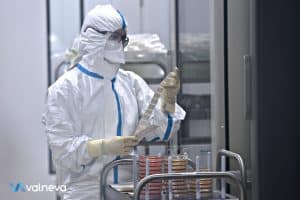
MedCity to launch in April
pharmafile | March 28, 2014 | News story | Medical Communications, Research and Development, Sales and Marketing | Boris Johnson, London, UCL, Wellcome, medcity, medical city
The eagerly anticipated launch of ‘MedCity’ will be announced in April, Pharmafile has learned, as the UK government looks to bring its big three cities of science closer together.
Set to be launched by London mayor Boris Johnson on 8 April, the capital is looking to create a ‘golden triangle’ in medical and life sciences research, linking London with Oxford and Cambridge.
The plans, first announced last year, propose a new district based around Euston Road in north-east London, near the University College Hospital and the Wellcome Trust, and the Francis Crick Institute, a medical research centre currently under construction.
The MedCity (aka The Medical City) scheme aims to forge links with academic institutions outside London and to build a global brand that attracts investment. It currently enjoys the backing of a number of senior NHS figures and London’s three academic health science centres: King’s Health Partners, Imperial College Healthcare and UCL Partners.
The mayor’s office will seek investment from pharma companies as well as build on interest from venture capital. It has already seen more than £1.1 million in funding from the Growing Places Fund, which will be in place for three years.
This won’t be enough to keep it going indefinitely, however, and the primary aim is to attract medical and pharma firms to the UK, whilst also encouraging new start-ups. The proposal is for MedCity to be self-sufficient by March 2016, and therefore free from mayoral input.
The government hopes it could become the ‘new Boston’ – a US city which boasts some of the world’s biggest, most well-funded bioscience firms. The Francis Crick Institute, due to open in 2015 in St Pancras, will be at the heart of the new plans.
This new facility is a unique partnership between the Medical Research Council, Cancer Research UK, the Wellcome Trust, University College London, Imperial College London and King’s College London.
These organisations will invest a total of £650 million in the Institute, which will be an interdisciplinary medical research centre designed to look for new ways to prevent and treat illnesses such as cancer, heart disease and stroke, as well as infections and neurodegenerative diseases.
Government plans
According to official documents, the new project will build on the east-west ribbon of London’s world-class science assets, which run from Whitechapel to Imperial West along the Euston Road.
This corridor is currently comprised of nearly 50 clinical research centres, hundreds of life science firms, medical schools, charitable institutions, bio-incubators and collaborations such as the Academic Health Science Centres, as well as the Francis Crick Institute.
There are also multiple different geographies that can be promoted, from the east-west corridor to pan-London capabilities and significant clusters across the greater south-east. MedCity seeks to strengthen the life sciences sector as a key economic driver and jobs creator in the London economy, according to the government documents. To this end, MedCity will:
• Create and promote a joined up and globally distinctive life science offer that will set London and the GSE apart in the global marketplace
• Act as a visible go to point for businesses and investors, whether global or local, to access, invest in or collaborate with London’s science base
• Provide a strong voice for the sector, champion its strengths, but also raise awareness of the factors impeding further growth and effect positive policy and other change.
The MedCity project will have a chief executive, who is yet to be named, but Johnson has said that he wants a ‘charismatic leader’ for this position.
There could also be some political undertones to this move by Johnson who, according to newspaper gossip, is seeking in the near future to become a Conservative minister again, in the hope of one day becoming prime minister.
Bringing in large investment to the city and helping develop a burgeoning life sciences industry outside the walls of the capital, will indeed do little harm to such political ambitions.
Speaking at the London Enterprise Panel when the plans were first announced, Johnson said: “London has an immensely rich heritage in medical research that I want to do much more to support. We have the brains and the money right here, we just need a dedicated team to pull it all together.
“The success of the tech city cluster (in west London) shows what’s possible in the digital sphere and I see no reason why medicine should be any different.”
Ben Adams
Related Content

Touchlight completes expansion of one of world’s largest DNA manufacturing facilities in London
Touchlight, a company that focuses on pioneering enzymatic DNA production, has announced that it has …

Valneva COVID-19 vaccine deal pulled by UK government
Boris Johnson and the UK government have terminated its deal with specialist vaccine company Valneva …

G7: UK to donate 100 million surplus vaccine doses
Boris Johnson has announced at the G7 meeting in Cornwall that the UK will donate …








